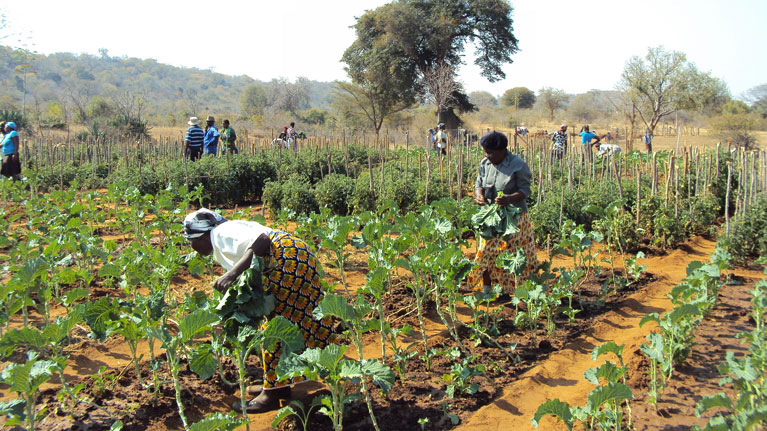Our impact, their voices
How worms and gold can help improve livelihoods in rural Zimbabwe
Thousands of people are set to benefit from a project in Zimbabwe aimed at creating jobs and improving livelihoods for women and youth in poor rural communities. The project focuses on the food production sector and gold ore processing.

But processing the edible insects – which are about as long as an adult finger – is a slow and painstaking process that involves squeezing them by hand to expel the guts.
The mopane worm sector is one of the areas that will benefit from a new, three year project implemented by the ILO in collaboration with the Ministry of Youth, Indigenisation and Economic Empowerment and the Ministry of Women Affairs, Gender and Community Development. The project, supported by the Africa Development Bank (AfDB), will also focus on horticulture, apiculture and artisanal gold ore milling.
The Youth and Women Empowerment Project (YWEP) aims at enhancing incomes and creating jobs in poor rural areas of Zimbabwe. About 5,000 women and young people – up to the age of 35 – will benefit directly, while the entire population of 650,000 in the five targeted district will benefit indirectly.
The project should create new jobs and increase the sales value of horticulture products, mopane worms and honey by setting up processing units in existing vocational training centres in the targeted districts. In addition, about 200 medium to small enterprises in the targeted food value chains are expected to be reached with business development services, appropriate technology and facilitation of access to credit and markets.

Weldone Mupita, who cultivates a horticultural plot at the Mupangwa Irrigation Scheme, in the fertile Honde valley of eastern Zimbabwe, says the project “is coming to rescue us.” Until now, he says, “unscrupulous buyers” would only pay 20 US cents or less for a kilo of bananas. “We currently accept any price because bananas are perishable. It’s better to pocket the 20 cents than watch my sweat go to waste.”
In addition to the food processing plants that will benefit the horticultural sector and beekeepers, the project is expected to help banana farmers access markets, including the European Union, and increase their incomes through product packaging and direct sales to buyers that will cut out the middlemen.